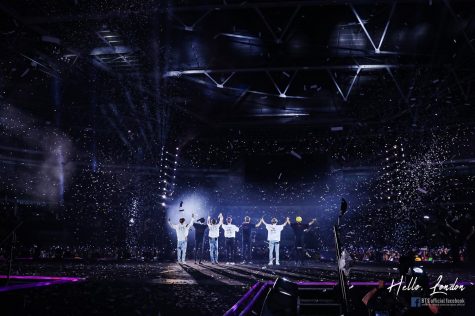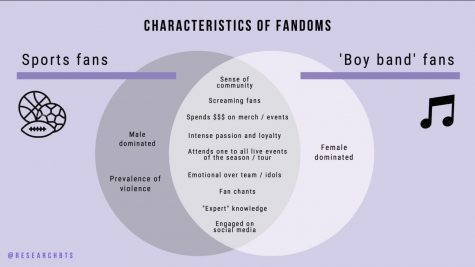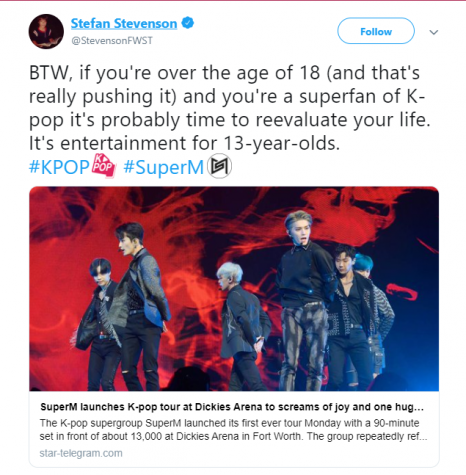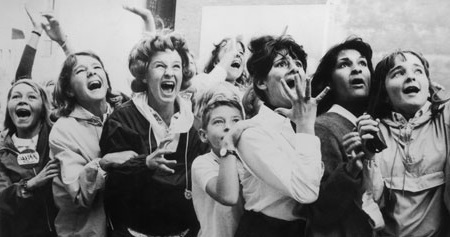The Underlying Misogyny Surrounding Fangirl Culture
Why are Female-dominated Interests Belittled?
October 6, 2020
When you hear the word “fangirl” you probably think of a bunch of girls screaming over their favorite celebrities. I can’t say that this image is untrue, but the negative connotation that comes with it is a reflection of decades of belittling female interests.
Whenever girls express interest in something (e.g., musicians, actors, books, or movies), we are always forced to explain why it is actually good. For some reason, anything with a mainly female fanbase will automatically be deemed as “manufactured” or “formulaic.” It is almost never taken seriously, and most people will credit the interest to it involving an attractive man. Girls can, and do, have an interest in things like music artists because of lyrics, production, or performance. Things don’t need to be dumbed down, inauthentic, and certainly don’t have to involve a hot guy for it to be picked up by a female audience.

On top of this, artists’ success itself is sometimes completely disregarded due to their female fanbases. “They only achieved this because of their fans,” or “Only high school girls would ever like them,” are just some examples of what I’ve heard being used to undermine the success of artists. Apparently, if someone is largely supported by girls, not only can they not be legitimately talented, but they also can’t have real success.
Oh, and if you’re wondering when The Beatles stopped being considered just another boyband and started being talked about like real and valid artists, despite originally having a female-dominated audience, it’s when men decided they liked them too.

The double standards that exist become all too clear when comparing the practices of fangirls and football fans side-by-side. It needs to be made very clear that buying merchandise, buying tickets, having fans with a wide range of all different types of people, and defending your favorite artist/team, are things that go on in both ends of the spectrum. I mean really, both have groups of screaming fans, but one is screaming because of a touchdown and the other because Harry Styles just delivered a beautiful note. There is intense analysis, but one is analyzing a play and the other is analyzing the meaning of lyrics. There is memorizing, but one is memorizing all the players of the NFL and the other is memorizing the members of BTS.
The only difference between these two groups of fans is that sports fandoms are male-dominated, yet this single difference is the reason only one side gets labeled as “rabid” and “obsessive”. I don’t think I’ve ever heard someone say, “BTW. If you’re over the age of 18 (and that’s really pushing it) and you’re still a superfan of football, it’s probably time to reevaluate your life. It’s entertainment for 13-year-olds.”

Age is another thing that should be pointed out. As soon as a baby is born they get a newborn outfit with the Cardinals logo on it, and they wear that logo with pride and passion until they die. This is great, but most girls never keep an interest this long and are constantly expected to grow out of them. So, an artist can’t be accepted if they have a lot of teenage fans, but adult fans get scrutinized? I’ve seen women be presented with the question, “Aren’t you a little too old to be a fan of [insert artist]?” The answer is no. If you can have a man-cave dedicated to a football team at 50-years-old, then she can have a Michael Jackson poster up at 50 too.
Small aggressions like these are just some of the ways girls’ characters are broken down from the moment they are old enough to take interest in something. Fangirls can be kids, teenagers, adults, or the elderly. They can be fangirls and have successful lives with complex thoughts too. Feeling the need to constantly justify something you love rather than just being respected, is not normal. Instead, a simple “I’m glad it makes you happy” is all we need to hear.





















please why • Oct 8, 2020 at 6:57 pm
The past is just a story we tell ourselves
Do you remember ours?
Tell me the story would you please?